Filter by
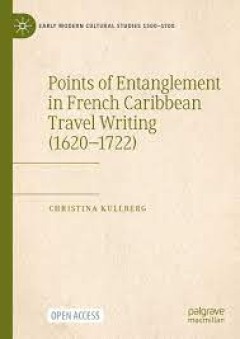
Points of Entanglement in French Caribbean Travel Writing (1620-1722)
This open-access book investigates Francophone Caribbean literature by exploring and analyzing French seventeenth-century travel writings. The book argues for a literary re-examination of the representation of the early colonial Caribbean by proposing theoretical linkages to contemporary Caribbean theories of creolization and archipelagic thinking. Using Édouard Glissant’s notion of points o…
- Edition
- -
- ISBN/ISSN
- 9783031233562
- Collation
- -
- Series Title
- -
- Call Number
- -
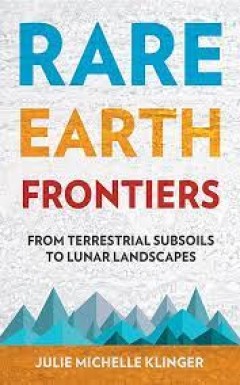
Rare Earth Frontiers From Terrestrial Subsoils to Lunar Landscapes
Owing to their unique magnetic, phosphorescent, and catalytic properties, rare earths are the elements that make possible teverything from the miniaturization of electronics, to the enabling of green energy and medical technologies, to supporting essential telecommunications and defense systems. An iPhone uses eight rare earths for everything from its colored screen, to its speakers, to the min…
- Edition
- -
- ISBN/ISSN
- 9781501714603
- Collation
- -
- Series Title
- -
- Call Number
- -
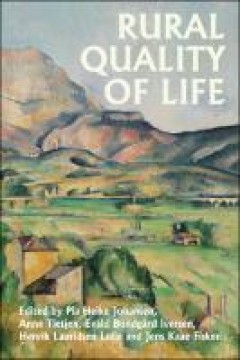
Rural quality of life
The 2020 World Happiness Report suggests that rural residents in Northern and Western Europe, North America, Australia and New Zealand are generally happier than their urban counterparts. Similar findings have been reported in country-level studies and broader regional research, especially in Europe. Such findings go against conventional wisdom in the field and represent something of a conundru…
- Edition
- Ed. 1
- ISBN/ISSN
- 9781526161642, 9781526161642
- Collation
- 505
- Series Title
- -
- Call Number
- 301.298 RUR r
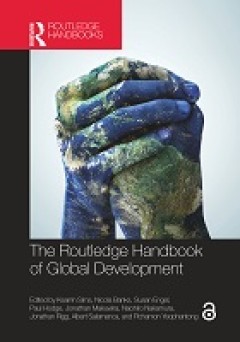
The Routledge Handbook of Global Development
This Handbook provides a comprehensive analysis of some of the world’s most pressing global development challenges – including how they may be better understood and addressed through innovative practices and approaches to learning and teaching. Featuring 61 contributions from leading and emerging academics and practitioners, this multidisciplinary volume is organized into five thematic part…
- Edition
- -
- ISBN/ISSN
- 9781003017653
- Collation
- -
- Series Title
- -
- Call Number
- -
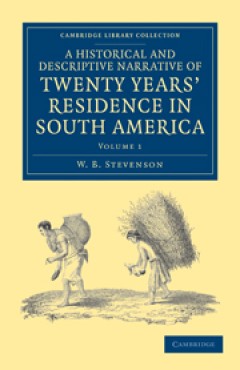
A Historical and Descriptive Narrative of Twenty Years' Residence in South Am…
In 1804 when W. B. Stevenson (fl. 1803–25) arrived on the small island of Mocha, just off the coast of South America, he stepped onto a continent on the brink of mass revolution. Over the next twenty years, he had an extraordinary range of experiences: as a traveller, a Spanish government official, a prisoner, and as secretary to an ex-Royal Navy admiral turned revolutionary. In this three-vo…
- Edition
- -
- ISBN/ISSN
- 9781139060585
- Collation
- -
- Series Title
- -
- Call Number
- -

Mining and Communities in Northern Canada: History, Politics, and Memory
For indigenous communities throughout the globe, mining has been a historical forerunner of colonialism, introducing new, and often disruptive, settlement patterns and economic arrangements. Although indigenous communities may benefit from and adapt to the wage labour and training opportunities provided by new mining operations, they are also often left to navigate the complicated process of re…
- Edition
- -
- ISBN/ISSN
- 9781552388051
- Collation
- -
- Series Title
- -
- Call Number
- -
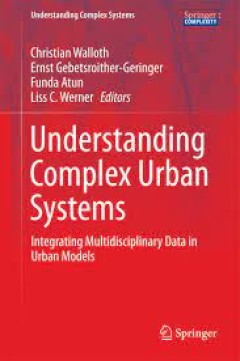
Understanding Complex Urban Systems Integrating Multidisciplinary Data in Ur…
This book is devoted to the modeling and understanding of complex urban systems. This second volume of Understanding Complex Urban Systems focuses on the challenges of the modeling tools, concerning, e.g., the quality and quantity of data and the selection of an appropriate modeling approach. It is meant to support urban decision-makers—including municipal politicians, spatial planners, and c…
- Edition
- -
- ISBN/ISSN
- 978-3-319-30178-5
- Collation
- -
- Series Title
- -
- Call Number
- -

Himalayan Nature and Tibetan Buddhist Culture in Arunachal Pradesh, India A …
This is the first book to systematically describe the formation and historical changes of the Monpa people’s area (Monyul) through its nature, society, culture, religion, agriculture and historically deep ties with Bhutan, Tibet and the Tibetan Buddhist faith. The state of Arunachal Pradesh is located in the northeastern part of India, surrounded by the borders of Assam, Bhutan, and Tibet (Ch…
- Edition
- -
- ISBN/ISSN
- 978-4-431-55491-2
- Collation
- XIV, 196
- Series Title
- -
- Call Number
- 910
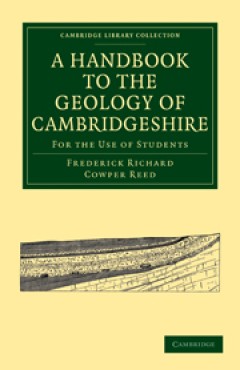
A Handbook to the Geology of Cambridgeshire For the Use of Students
Beneath Cambridgeshire's towns, villages, farmland, hills, fens and waterways lie the rocks that display a variety of geological landscapes. Basement rocks are buried under sandy deposits from ancient tropical seas. The rising and tilting of the land due to large-scale movements permitted water flows that produced gradual alterations. Glaciation, erosion and dramatic variations in climate all w…
- Edition
- -
- ISBN/ISSN
- 9780511693410
- Collation
- -
- Series Title
- -
- Call Number
- -
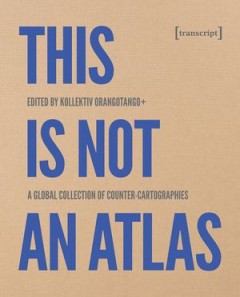
This is Not an Atlas: A Global Collection of Counter-Cartographies
This Is Not an Atlas gathers more than 40 counter-cartographies from all over the world. This collection shows how maps are created and transformed as a part of political struggle, for critical research or in art and education: from indigenous territories in the Amazon to the anti-eviction movement in San Francisco; from defending commons in Mexico to mapping refugee camps with balloons in Leba…
- Edition
- 2
- ISBN/ISSN
- 9783839445198
- Collation
- -
- Series Title
- -
- Call Number
- 912 ATL a
 Computer Science, Information & General Works
Computer Science, Information & General Works  Philosophy & Psychology
Philosophy & Psychology  Religion
Religion  Social Sciences
Social Sciences  Language
Language  Pure Science
Pure Science  Applied Sciences
Applied Sciences  Art & Recreation
Art & Recreation  Literature
Literature  History & Geography
History & Geography